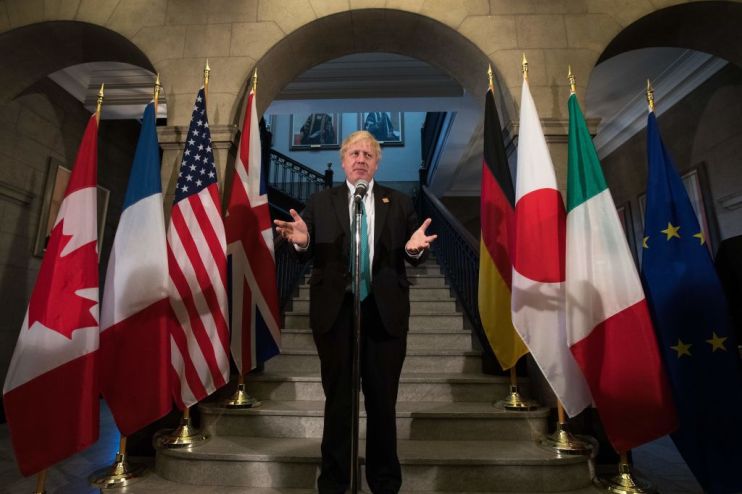He might not be best friends with the press, but the Prime Minister is no Putin

Is Boris Johnson the new Vladimir Putin?
That’s what Dorothy Byrne, head of news for Channel 4, suggested at the Edinburgh Festival last week. Byrne said that Boris Johnson was “a known liar”, and accused him of aping not only Donald Trump, but the Russian President in his dealings with the press.
A head of news knows how to generate headlines, but is there any merit to Byrne’s comparisons?
There’s no denying that this Prime Minister has brought a new attitude to media relations. He is, of course, a former hack himself, and used his weekly Telegraph column to promote his own cause throughout his political career, especially during his leadership campaign.
Some of the claims he has made, we know, are inaccurate or misleading. But a platform to air ideas is not the same as the kind of propaganda we see in authoritarian regimes. And now that Boris is Prime Minister, the column is no more.
As for his relationship with the press, it is true that this has been less chummy than might have been expected. The Boris leadership campaign camp was virtually impenetrable to journalists. His handlers seemed to want to shut down any unsupervised or unpredictable opportunities, and they backed away from most of the televised debates.
At Westminster, this caused some disquiet. It smacked of arrogance. We’re going to win anyway, they seemed to say, so why risk anything?
His team in Number 10 also seems to reflect this attitude. The director of communications, Lee Cain, was head of broadcast for Vote Leave, then an adviser to Boris at the Foreign Office. He is a former journalist himself; one paper employed him to dress as a chicken and follow David Cameron on the campaign trail.
He has been joined by Rob Oxley, another Vote Leave alumnus, as the Downing Street press secretary.
Cain and Oxley have moved in the media milieu for more than a decade. But they are, first and foremost, Boris loyalists. The sense is that they subscribe to the Project, and the Project is Boris.
This is how the Prime Minister’s media operation is run. Like his leadership campaign, the Boris Downing Street is a fortress, waiting for the inevitable assault. You can see why journalists such as Byrne might be frustrated, even concerned, by their need for control and desire to seize and govern the news agenda.
But is this anything like how Trump and Putin operate?
Trump does deploy similar tactics, controlling the news agenda and surrounding himself with media-savvy loyalists. But that’s a very tenuous analogy – what leader does not try to build a team they can trust?
To compare Boris to Putin’s authoritarian machine, meanwhile, is pure hyperbole. The British Prime Minister is not launching attacks on press freedom, using state broadcasters to disseminate propaganda, or attempting to censor critics.
Boris seems to want his hand on the news tiller more firmly than any Prime Minister since Tony Blair in his pomp. And I doubt that the new regime’s relationship with the press will ever be harmonious.
But we are far from a situation where Downing Street is waging outright war on journalists. As John Major would tell you, taking up your lance against the media is unlikely to end well.
So let’s be a little careful about turning a news molehill into a control-freak mountain.
Main image credit: Getty